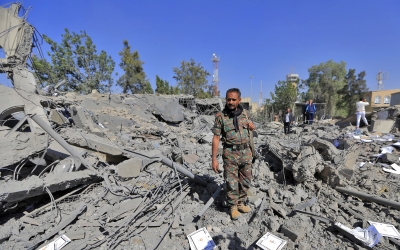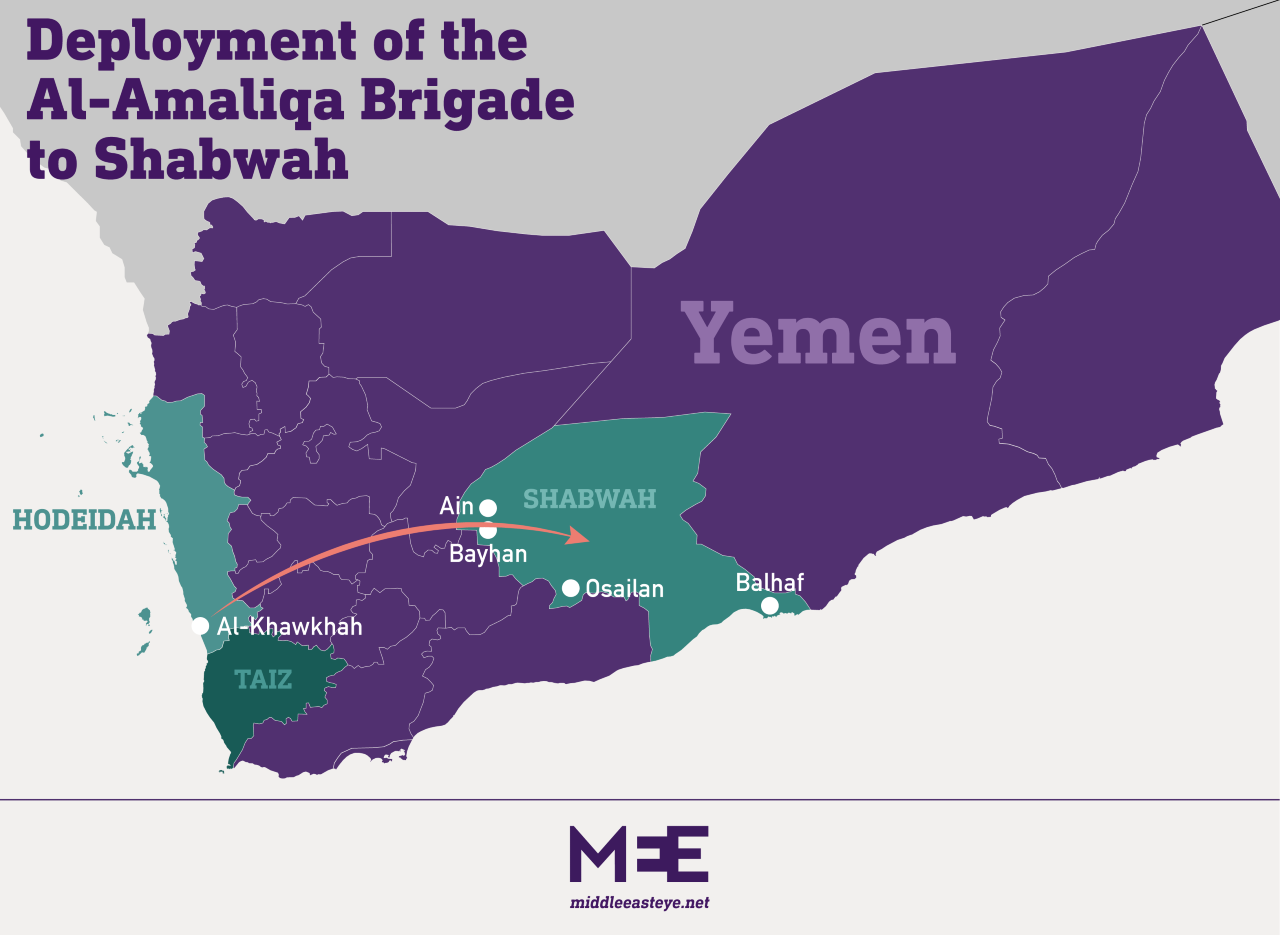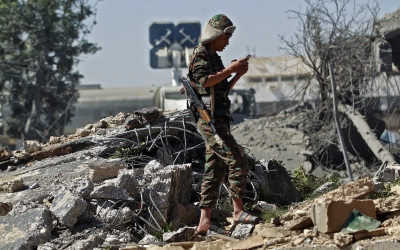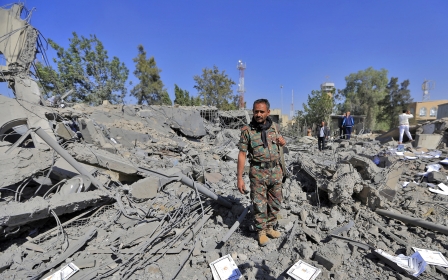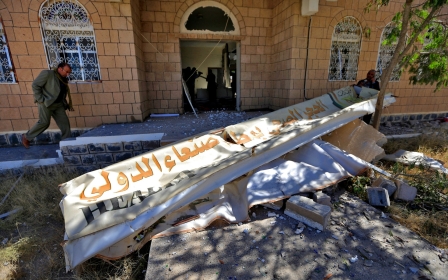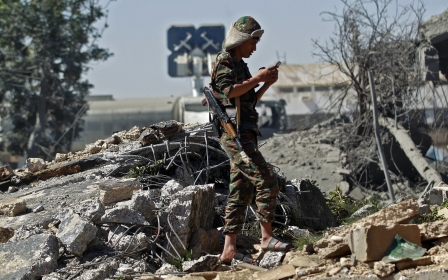Yemen: Pro-UAE forces take over Shabwah after president sacks governor
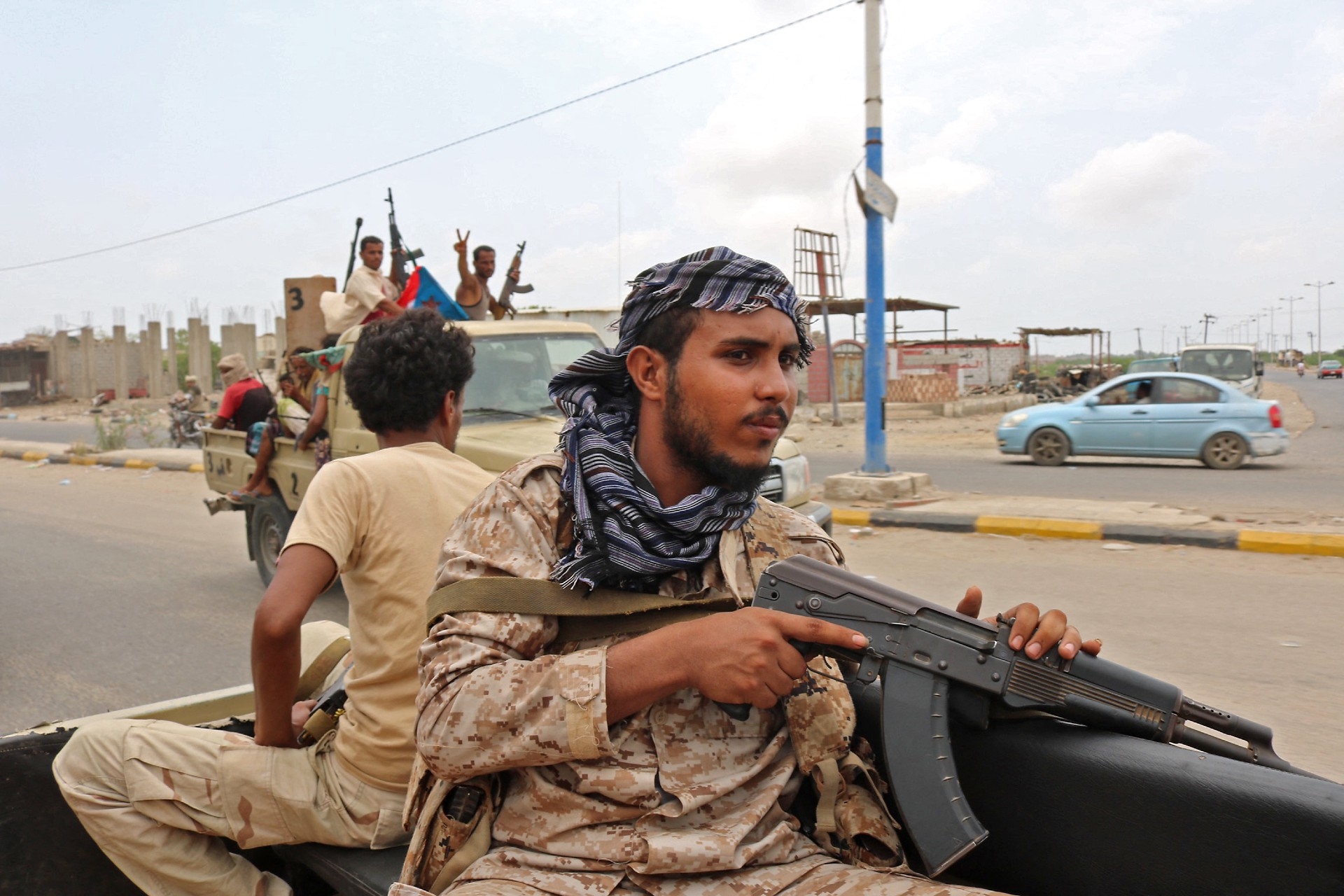
The fate of Yemen's Shabwah governorate has been an ongoing source of conflict between fighters backed by the United Arab Emirates (UAE) and pro-government forces since the appointment of Mohammed Saleh bin Adyo as governor in November 2018.
After taking up the position, bin Adyo led several battles against the UAE-backed forces in Shabwah, eventually recapturing most of the coastal province, which lies to to the east of Aden, by August 2019.
Only the Balhaf seaport remained under the control of the Emiratis, a situation that enraged local Yemeni authorities, who were eager to see the port once again exporting gas in a bid to jump-start the economy.
In September, bin Adyo accused the UAE-backed forces of hijacking Balhaf and called on Abu Dhabi to withdraw from the port.
Taking advantage of the dispute, in the same month Houthi rebels took over the Bayhan and Ain districts of Shabwah, where they also hold the district of Osailan.
Tensions between bin Adyo and the UAE-backed forces came to an abrupt head on Saturday when Yemen's President Abd Rabbuh Mansour Hadi sacked bin Adyo and appointed a pro-UAE governor, Awadh al-Awlaqi, in his place.
Despite anger from bin Adyo's supporters, there was nothing they could do about the change, and bin Adyo has now left Yemen.
On Monday, the UAE-backed Al-Amaliqa Brigade, which had been fighting in the provinces of Taiz and Hodeidah on the western coast, left the Al-Khawkhah district of Hodeidah to support Awlaqi.
Before Awlaqi's appointment, the brigade and other UAE-backed forces had not dared to enter Shabwah with bin Adyo in control.
However, the 27 December takeover was peaceful, with high ranking military leaders, including some who had worked with bin Adyo, receiving the brigade with their military vehicles when they arrived in Shabwah that evening.
Following the deployment, the UAE-backed forces are now in control of most of the province.
'Liberate Shabwah'
The port of Balhaf, which saw the construction of a liquefied natural gas plant in 2006, has been under UAE control since 2016, a year after the country first intervened in Yemen.
In taking the port, bin Adyo had accused the Emiratis of hijacking one of the country's key assets and using it to foment "rebellion".
Justifying their intervention on Monday, the website of the Al-Amaliqa Brigade said the fighters had travelled to Shabwah to liberate those districts under the control of the Houthis.
"Our colleagues moved to Shabwah as reinforcements to the forces there to liberate Shabwah from the Houthi militia and not for any other reason," a fighter with the Al-Amaliqa Brigade on the western coast told Middle East Eye.
"They received directions from the leadership to support the fighters in Shabwah as it is now a priority for the leadership."
He added they were also happy to support the new governor in his job and improve the income of the country.
"Shabwah is an oil field and, if we save it from the Houthis, it will be easier for the governor and the government to export oil through Balhaf seaport, and that's why it is a priority now," the fighter said.
Regarding the ongoing battles on the western coast, he said that they were still fighting there despite the movement of the forces to Shabwah.
"The Houthi militia are our enemy, and we will keep fighting them everywhere, either in Shabwah or on the western coast - and we have no worries about the western coast."
'Hadi is a puppet'
Hadi, who was kicked from power in Yemen's capital, Sanaa, by the Houthis in 2014, fled to Saudi Arabia the following year.
Referring to Hadi's appointment of Awlaqi, Ali, a pro-government resident of Shabwah who did not want to give his real name for security reasons, told MEE: "Hadi is a puppet and he can't take any decision.
"It is Saudi Arabia that takes the decisions and he only announces them.
"Bin Adyo was working for the sake of Yemen and fights the UAE because it controls our wealth, but he was rewarded by being sacked by Hadi."
Ali said that bin Adyo had received support from people in Shabwah after he liberated it from the UAE-backed forces, but "Hadi supports Saudi and not Yemen".
"Bin Adyo was fighting both the UAE-backed forces and the Houthis at the same time, but Hadi was also fighting bin Adyo."
Before the war, income from oil production constituted 70 to 75 percent of the Yemeni government's revenues and about 90 percent of exports.
But oil production came to a near-complete halt in 2015, when war erupted between government forces and the Houthis.
"Bin Adyo was thinking how to export oil from Balhaf [for the people of Shabwah], but Hadi just thinks how to seek money from Saudi and the Emirates," said Ali.
"Instead of the Yemeni government exporting oil from Balhaf, Hadi allowed the Emirates to take it over."
Ali said that Yemenis know the UAE wants to control all the seaports in Yemen, including Balhaf.
He added that the residents of Shabwah refuse to accept UAE control and that one day they will take back the province.
'Life has changed for the worse'
Hailan Alawi, a resident of Shadwah who said he didn't support either side, said he hoped the province would return to how it was before the war and that authorities would start to export oil again.
"Before the war, there were several oil companies, and we used to work with them and everything was good," Alawi told MEE.
"But since the war started, the oil companies have left Yemen, and the life of all Yemenis has changed for the worse.
"I don't care who controls Shabwah as long as it is safe, the oil companies return and Yemen can resume exporting oil."
Middle East Eye delivers independent and unrivalled coverage and analysis of the Middle East, North Africa and beyond. To learn more about republishing this content and the associated fees, please fill out this form. More about MEE can be found here.


